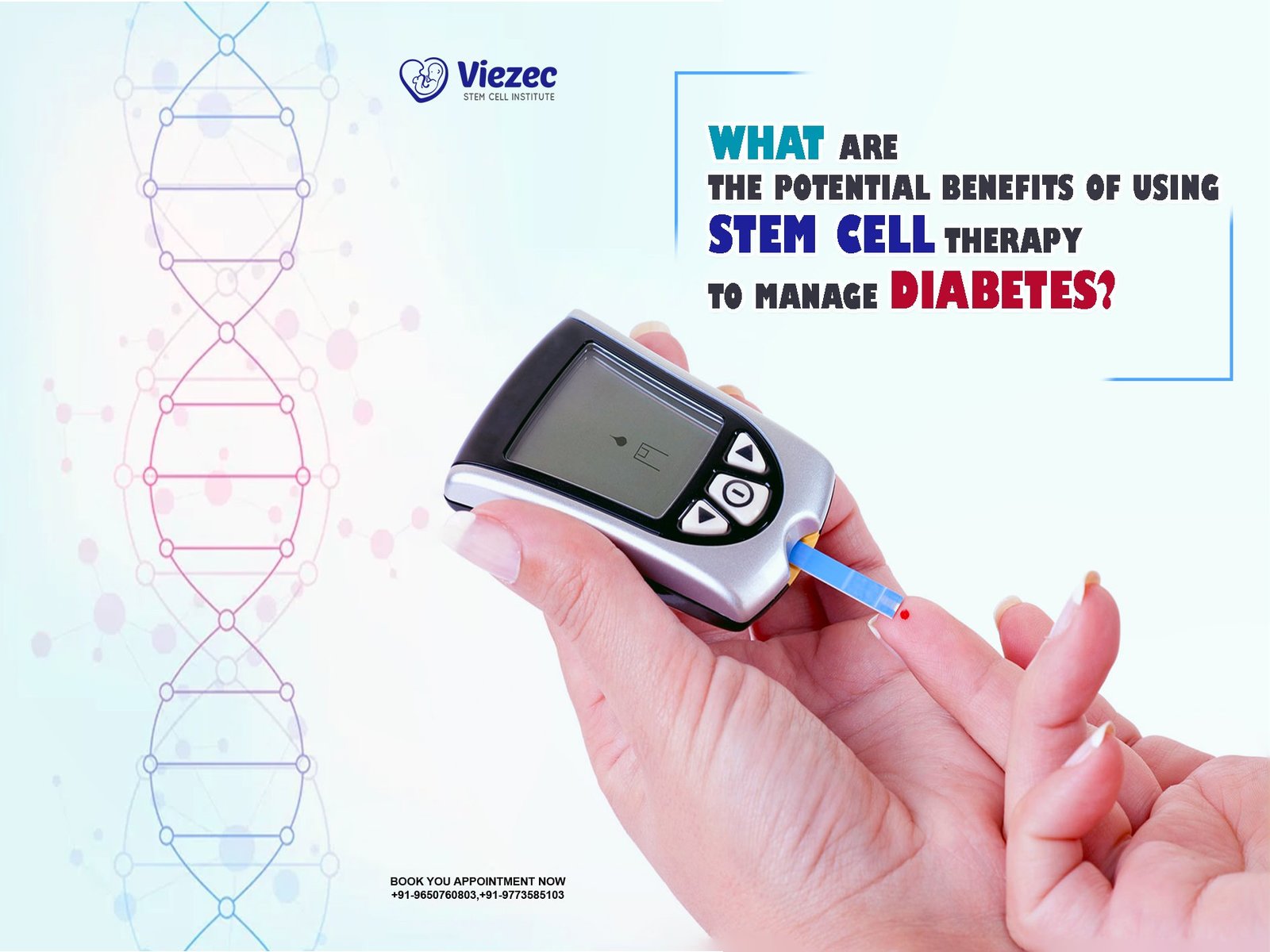Type 1 diabetes is a chronic autoimmune condition characterized by the body’s inability to produce insulin, the hormone responsible for regulating blood sugar levels. Unlike type 2 diabetes, which is often associated with lifestyle factors, type 1 diabetes typically develops early in life and requires lifelong management. Individuals with type 1 diabetes depend on insulin injections or infusion through a pump to survive.
Mechanisms of Type 1 Diabetes Development
The development of type 1 diabetes involves the immune system mistakenly attacking and destroying insulin-producing beta cells in the pancreas. This autoimmune response leads to a deficiency in insulin production, resulting in high blood sugar levels. Genetic predisposition, environmental factors, and viral infections are believed to contribute to the onset of the condition. Understanding the complex interplay of these factors is crucial for developing targeted therapies.
Current Treatment Landscape
The current standard of care for type 1 diabetes primarily revolves around insulin replacement therapy. Patients must carefully monitor their blood sugar levels and administer insulin accordingly to maintain stable glucose levels. While insulin therapy effectively manages symptoms, it does not address the underlying autoimmune process or prevent long-term complications associated with the disease. Therefore, there is a pressing need for innovative treatment approaches that offer better control and improved quality of life for individuals with type 1 diabetes.
Emerging Frontiers in Type 1 Diabetes Research
Overview of Recent Breakthroughs
Recent advancements in type 1 diabetes research have unveiled promising new avenues for treatment. From stem cell therapy to immunomodulatory interventions, researchers are exploring diverse approaches aimed at preserving beta cell function and restoring immune tolerance. These breakthroughs hold the potential to revolutionize diabetes management and pave the way towards a cure.
The Role of Stem Cells in Diabetes Therapy
Stem Cell Transplantation: A Promising Approach
Stem cell transplantation offers a potential solution for replenishing the beta cell population destroyed in type 1 diabetes. By harnessing the regenerative capacity of stem cells, researchers aim to restore insulin production and reverse the disease process. Clinical trials utilizing stem cell-based therapies have shown encouraging results, demonstrating improvements in insulin secretion and glycemic control in participants.
Harnessing Stem Cells for Beta Cell Regeneration
Another promising avenue is the use of stem cells to regenerate beta cells within the pancreas. Through the differentiation of pluripotent stem cells into insulin-producing cells, researchers seek to replenish the beta cell pool and restore endogenous insulin production. This regenerative approach holds the promise of long-term efficacy and reduced reliance on exogenous insulin therapy.
Immunotherapy: Modulating the Immune System
Immunotherapy strategies aim to modulate the immune system and prevent the destruction of beta cells in type 1 diabetes. By targeting specific immune cells or molecules involved in the autoimmune response, researchers seek to induce immune tolerance and preserve beta cell function. Immunomodulatory therapies hold the potential to halt disease progression and achieve sustained remission in individuals with type 1 diabetes.
Stem Cell Therapy in Type 1 Diabetes
Fundamentals of Stem Cell Therapy
Stem cell therapy represents a revolutionary approach to treating type 1 diabetes by replacing damaged or dysfunctional cells with healthy, functional ones. Stem cells possess the unique ability to differentiate into various cell types, including insulin-producing beta cells, making them a promising tool for regenerative medicine.
Stem Cell Sources for Diabetes Treatment
Several sources of stem cells have been explored for diabetes therapy, including embryonic stem cells, induced pluripotent stem cells (iPSCs), and adult stem cells. Each source offers distinct advantages and challenges in terms of scalability, safety, and efficacy. While embryonic stem cells and iPSCs have the potential for unlimited expansion and differentiation, adult stem cells offer the advantage of autologous transplantation, minimizing the risk of rejection.
Challenges and Limitations in Stem Cell Application
Despite the tremendous potential of stem cell therapy, several challenges must be addressed before its widespread clinical implementation. These include safety concerns such as tumorigenicity, immune rejection, and the need for precise control over cell differentiation and function. Additionally, scalable manufacturing processes and regulatory hurdles pose significant obstacles to the translation of stem cell-based therapies into clinical practice.
Genetic Engineering and CRISPR-Cas9
Precision Medicine in Diabetes Management
Precision medicine holds the promise of personalized treatment approaches tailored to the individual genetic makeup of patients with type 1 diabetes. By leveraging genetic insights, clinicians can identify novel therapeutic targets and optimize treatment regimens to improve outcomes and minimize adverse effects.
CRISPR-Cas9: Editing the Diabetic Genome
CRISPR-Cas9 technology offers unprecedented precision in genome editing and holds immense potential for correcting genetic defects associated with type 1 diabetes. By precisely targeting and modifying disease-causing genes, researchers aim to restore normal beta cell function and halt the progression of the disease. CRISPR-based interventions represent a paradigm shift in diabetes therapy, offering the possibility of permanent genetic corrections and long-term remission.
Ethical Considerations and Future Implications
While CRISPR-Cas9 holds tremendous promise for treating type 1 diabetes, ethical considerations surrounding genetic manipulation and unintended off-target effects must be carefully evaluated. Robust regulatory frameworks and ethical guidelines are essential to ensure the safe and responsible application of genome editing technologies in clinical practice. Furthermore, ongoing research is needed to fully understand the long-term implications and potential risks associated with genetic engineering in diabetes management.
Bioengineering Solutions for Insulin Delivery
Innovations in Insulin Delivery Devices
Recent advancements in bioengineering have led to the development of innovative insulin delivery devices that offer improved accuracy, convenience, and patient comfort. From smart insulin pens to wearable pumps, these technologies aim to enhance insulin administration and optimize glycemic control in individuals with type 1 diabetes.
Artificial Pancreas: Automated Glucose Monitoring and Insulin Delivery
The concept of an artificial pancreas, also known as a closed-loop system, represents a groundbreaking advancement in diabetes care. By integrating continuous glucose monitoring (CGM) with automated insulin delivery, artificial pancreas systems mimic the function of the human pancreas, dynamically adjusting insulin dosing in response to real-time glucose levels. These closed-loop systems offer the potential for tighter glycemic control and reduced risk of hypoglycemia, thereby improving quality of life for individuals with type 1 diabetes.
Nanotechnology in Diabetes Management
Nanotechnology holds promise for revolutionizing diabetes management through targeted drug delivery, enhanced glucose sensing, and tissue engineering. Nanostructured materials and nanoparticles offer unique advantages, including increased biocompatibility, sustained release kinetics, and improved tissue penetration. By leveraging nanotechnology, researchers aim to develop next-generation therapies and diagnostics for more effective and personalized diabetes care.
Personalized Medicine Approaches
Genetic Profiling for Tailored Therapies
Advances in genomic sequencing technologies have enabled comprehensive genetic profiling of individuals with type 1 diabetes, facilitating the identification of disease-associated variants and personalized treatment strategies. By analyzing genetic markers and gene expression patterns, clinicians can stratify patients based on their risk profile and tailor therapies to target specific molecular pathways underlying the disease.
Predictive Modeling and Machine Learning in Diabetes Care
Machine learning algorithms and predictive modeling techniques hold the potential to revolutionize diabetes care by leveraging vast amounts of clinical data to predict disease progression, optimize treatment outcomes, and personalize therapeutic interventions. By integrating data from electronic health records, wearable devices, and genetic profiles, predictive analytics can inform clinical decision-making and improve patient outcomes.
Pharmacogenomics: Optimizing Drug Response
Pharmacogenomics seeks to elucidate the genetic determinants of drug response and guide personalized medication selection in individuals with type 1 diabetes. By identifying genetic variants associated with drug metabolism, efficacy, and adverse effects, pharmacogenomic testing can help clinicians optimize medication regimens and minimize treatment-related complications. This tailored approach to drug therapy holds the potential to improve treatment outcomes and enhance patient adherence.
Regenerative Medicine Strategies
Tissue Engineering for Pancreatic Replacement
Tissue engineering holds promise for creating bioengineered pancreas constructs capable of restoring normal endocrine function in individuals with type 1 diabetes. By combining biomaterial scaffolds with stem cells or pancreatic progenitor cells, researchers aim to fabricate functional pancreatic tissue for transplantation. Tissue-engineered pancreas constructs offer the potential for long-term insulin independence and improved quality of life for diabetes patients.
Islet Cell Transplantation: Enhancing Success Rates
Islet cell transplantation represents a minimally invasive approach to restoring beta cell function in individuals with type 1 diabetes. Recent advancements in islet isolation techniques, immunosuppressive protocols, and transplantation strategies have led to improved success rates and long-term outcomes. By optimizing donor selection criteria and transplantation protocols, researchers aim to enhance the efficacy and durability of islet cell transplantation as a treatment option for type 1 diabetes.
Biomaterials in Diabetes Tissue Engineering
Biomaterials play a critical role in diabetes tissue engineering by providing structural support, promoting cell adhesion and proliferation, and facilitating vascularization of engineered tissues. From natural polymers to synthetic scaffolds, biomaterials offer versatile platforms for designing functional tissue constructs for pancreatic replacement. By leveraging the unique properties of biomaterials, researchers aim to overcome challenges associated with immune rejection and enhance the engraftment and long-term survival of transplanted cells.
Nutritional Interventions and Diet Management
Role of Diet in Diabetes Prevention and Management
Diet plays a crucial role in the prevention and management of type 1 diabetes by influencing blood sugar levels, insulin sensitivity, and overall metabolic health. A balanced diet rich in whole grains, fruits, vegetables, and lean proteins can help stabilize blood glucose levels and reduce the risk of complications associated with the disease. Additionally, carbohydrate counting and meal planning are essential strategies for managing insulin dosing and optimizing glycemic control in individuals with type 1 diabetes.
Low-Carb and Ketogenic Diets in Type 1 Diabetes
Low-carbohydrate and ketogenic diets have gained attention as alternative dietary approaches for managing type 1 diabetes. By minimizing carbohydrate intake and promoting fat metabolism, these dietary regimens aim to stabilize blood sugar levels and reduce the need for exogenous insulin therapy. While some individuals may experience improvements in glycemic control and insulin sensitivity on low-carb or ketogenic diets, careful monitoring and adjustment of insulin dosing are essential to prevent hypoglycemia and other adverse effects.
Micronutrient Supplementation for Diabetes Control
Micronutrients, including vitamins, minerals, and antioxidants, play important roles in regulating glucose metabolism, insulin action, and immune function. Deficiencies in certain micronutrients, such as vitamin D and magnesium, have been implicated in the pathogenesis of type 1 diabetes and may contribute to disease progression. Supplementation with micronutrients may help correct deficiencies and optimize metabolic health in individuals with type 1 diabetes, although further research is needed to elucidate the specific effects and optimal dosing strategies.
Mind-Body Therapies and Psychological Support
Psychosocial Factors in Type 1 Diabetes
Psychosocial factors, including stress, depression, and anxiety, can significantly impact the management and outcomes of type 1 diabetes. The constant demands of diabetes self-care, fear of hypoglycemia, and social stigma associated with the condition can take a toll on mental health and quality of life. Addressing psychosocial issues through counseling, support groups, and mindfulness-based interventions is essential for holistic diabetes care and improving overall well-being.
Stress Management Techniques for Diabetes Patients
Stress management techniques, such as relaxation exercises, mindfulness meditation, and cognitive-behavioral therapy, can help individuals with type 1 diabetes cope with the emotional and psychological challenges of living with a chronic illness. By reducing stress levels and promoting emotional resilience, these interventions can improve glycemic control, enhance self-care behaviors, and mitigate the impact of stress-related complications.
Integrative Approaches to Diabetes Care
Integrative approaches to diabetes care encompass a wide range of complementary and alternative therapies, including acupuncture, yoga, and herbal supplements. While evidence supporting the efficacy of these interventions in type 1 diabetes management is limited, many individuals find value in incorporating integrative modalities into their treatment regimen to complement conventional medical therapies and promote overall wellness. Integrative diabetes care emphasizes a holistic approach to health and wellness, addressing the physical, emotional, and spiritual aspects of healing.
Advancements in Continuous Glucose Monitoring (CGM)
Evolution of CGM Technology
Continuous glucose monitoring (CGM) technology has undergone rapid evolution in recent years, with advancements in sensor accuracy, wearability, and connectivity. CGM systems provide real-time data on glucose levels, trends, and patterns, enabling individuals with type 1 diabetes to make informed decisions about insulin dosing, diet, and physical activity. Continuous glucose monitoring has revolutionized diabetes management by reducing the burden of fingerstick testing and offering greater insight into glycemic control.
Wearable Sensors for Real-Time Monitoring
Wearable sensors and implantable devices represent the next frontier in continuous glucose monitoring, offering discreet and convenient solutions for real-time glucose monitoring. From smartwatches to skin patches, these wearable technologies integrate seamlessly into daily life, providing continuous glucose data without the need for frequent sensor calibrations or manual data entry. Wearable sensors hold promise for enhancing patient engagement and adherence to diabetes self-management practices.
Closed-Loop Systems: Future Directions
Closed-loop systems, also known as artificial pancreas systems, represent the future of diabetes care by combining continuous glucose monitoring with automated insulin delivery in a closed-loop feedback system. These advanced technologies dynamically adjust insulin dosing based on real-time glucose data, minimizing the risk of hypoglycemia and hyperglycemia. Closed-loop systems offer the potential for personalized and adaptive diabetes management, improving outcomes and quality of life for individuals with type 1 diabetes.
Clinical Trials and Regulatory Landscape
Overview of Current Clinical Trials
Clinical trials play a critical role in advancing novel therapies and technologies for type 1 diabetes treatment. From stem cell transplantation to immunomodulatory interventions, a wide range of investigational treatments are currently being evaluated in clinical trials worldwide. These trials aim to assess safety, efficacy, and long-term outcomes in diverse patient populations, with the ultimate goal of bringing innovative therapies to market.
Regulatory Challenges in Diabetes Drug Development
Regulatory approval is a key milestone in the development of new therapies for type 1 diabetes, but it also poses significant challenges and barriers. Regulatory agencies such as the U.S. Food and Drug Administration (FDA) and the European Medicines Agency (EMA) require robust clinical evidence demonstrating safety and efficacy before granting market approval. Meeting these regulatory requirements involves navigating complex regulatory pathways, conducting rigorous preclinical and clinical studies, and addressing safety concerns and ethical considerations.
Patient Advocacy and Participation
Patient advocacy groups play a vital role in raising awareness, driving research, and influencing policy decisions related to type 1 diabetes. By advocating for patient-centered research priorities, improved access to care, and regulatory reforms, advocacy organizations empower individuals with type 1 diabetes to actively participate in their own care and contribute to the advancement of diabetes science. Patient engagement and participation in clinical trials are essential for ensuring that new therapies meet the needs and preferences of the diabetes community.
Directions and Challenges
Promising Horizons in Type 1 Diabetes Treatment
The future of type 1 diabetes treatment holds great promise, with ongoing research and innovation driving the development of transformative therapies and technologies. From stem cell therapy to genetic engineering, personalized medicine, and regenerative medicine, the landscape of diabetes care is evolving rapidly, offering new hope for individuals living with this chronic condition. With continued investment in research, collaboration, and patient advocacy, we can work towards a future where type 1 diabetes is effectively managed and ultimately cured.
Addressing Barriers to Implementation
Despite the progress made in type 1 diabetes research, several challenges and barriers remain to be addressed. These include the high cost of innovative therapies, limited access to specialized care, disparities in healthcare delivery, and regulatory hurdles in drug development. Additionally, ethical considerations surrounding emerging technologies such as genetic engineering and stem cell therapy require careful deliberation and stakeholder engagement. Addressing these barriers will require concerted efforts from stakeholders across academia, industry, government, and patient advocacy groups.
Collaborative Efforts for a Cure
Achieving a cure for type 1 diabetes will require collaborative efforts and multidisciplinary approaches that transcend traditional boundaries. By fostering collaboration between researchers, clinicians, industry partners, and patient advocates, we can accelerate the pace of discovery, translation, and implementation of novel therapies. Collaborative initiatives such as research consortia, patient registries, and public-private partnerships play a crucial role in advancing our collective understanding of type 1 diabetes and developing effective treatments. Together, we can work towards a future where type 1 diabetes is no longer a burden for individuals and families worldwide.











